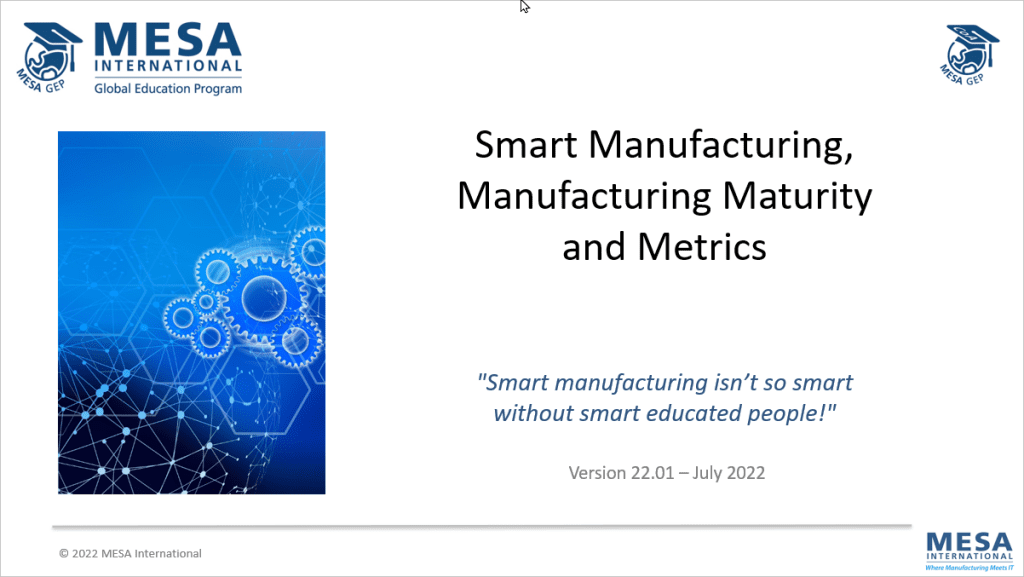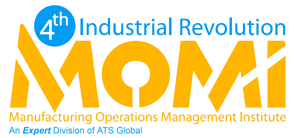Smart Manufacturing is not just about technology. It is not something you buy of the shelf. Smart Manufacturing is primarily about empowering people in manufacturing. There are many things that make Smart Manufacturing attractive, like new business models, supply chain and partner collaboration, self-correcting manufacturing, real-time response and flexible (agile) production with standardized processes. In this module, we discuss its core concepts.
The Fourth Industrial Revolution is (being) built on a solid foundation of the Third. Therefore, a mature MES/MOM serves as the backbone for Smart. A structured assessment of the current manufacturing capabilities is the input for a plan to improve and leverage the new and advanced technologies and methodologies of Smart Manufacturing and Industry 4.0.

In this module, we discuss the Singapore Smart Industry Readiness Index and how this tool can help you find out how ready your are. Maturity models help to create a shared vision of process improvement within the organization and to set priorities based on objective measurements.
An ISA-95 based maturity capability assessment delivers the current maturity level and provides guidelines for structured step-by-step improvement via a plan. In the roadmap, each MOM project ROI identifies corrective actions to mitigate risks through required change to organization structure, process, personnel and technology. Significant cost reduction is a matter of effective work processes across plants and supply chain operations for normal and abnormal operating states. The real solution for effective work processes requires simultaneous changes in organization structure, operations processes, and employee skill sets all enabled by MOM technologies.
When raising your manufacturing capability maturity, it is important to measure the progress of your smart manufacturing and continuous improvement initiatives. It is critical for manufacturing practitioners and executives to understand the power of real-time decisions for manufacturing operations metrics before and after linking them to financial and business level metrics. Learners better understand the differences between the various types of metrics and how to construct a metrics framework.

- Smart Manufacturing and Industry 4.0
- Core Concepts of Smart Manufacturing
- Standards for Smart Manufacturing
- MES/MOM as Smart Backbone
- How Ready are You?
- Continuous Improvement
- Manufacturing Maturity Model
- Manufacturing Capability Assessment
- How to Measure Performance?
- Conclusions and Wrap-up
Reference Materials:
1. MESA White Paper #38: Building a Manufacturing Transformation Strategy with ISA-95 Methods
2. MESA White Paper #52: Smart Manufacturing – The Landscape Explained
3. MESA White Paper #53: MESA MOM Capability Maturity Model Version 1.0
4. MESA White Paper #60: Smart Manufacturing and Cloud Computing
5. MESA Guidebook: MESA Metrics Guidebook – second edition
